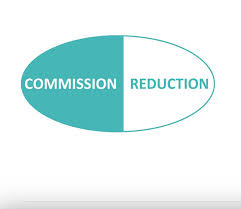

Let’s assume that you are the buyer’s agent and you have been told that the property have been mortgaged to the hilt, the taxes are several years in arrears, and there are outstanding executions affecting the property.
Do you just move on to another property, or can you be paid out of this deal? After all, you have the buyer and you are the one who is putting this whole deal together, so you should get paid.
Many agents will try to write something into the Offer giving themselves some priority. Will this work? Probably not!
A frequently used clause in the Offer will impose an obligation upon the seller to credit the buyer with the amount of the buyer’s commission.
This is still a major issue, if there is a shortfall, since other creditors have priority over the commission payment.
In the early 1990’s in the midst of a severe economic recession, commission payment issues arose frequently. The buyer’s agent never got paid since the listing brokerage was short of cash, and either went bankrupt or was placed in receivership.
Eventually, reforms led to commission trust provisions and insurance. But, why let things get so far?
Consider the following approach:
1. amend the Buyer Representation Agreement (BRA),
2. attach a Schedule to it,
3. refer to the credit in the Agreement of Purchase and Sale (APS),
4. include an irrevocable direction,
5. state that the funds received by the buyer’s lawyer shall include the credit,
6. upon closing, the funds in trust, equal to the amount of the credit shall constitute trust funds on behalf of the buyer’s agent etc.
The advantage here, is that the buyer and the buyer’s agent deal with one another directly. The seller’s credit is enforceable because it’s covered in the APS, and the commission security issue is covered under the BRA.
This way, the money flows appropriately. The buyer’s mortgage company advances funds to the buyer’s lawyer in trust. The deal is closed and the credit referred to in the Offer is provided to the buyer in the statement of adjustments. Immediately upon closing, the funds in the buyer’s lawyer’s trust account are imposed with a trust in favour of the buyer’s brokerage.
This way, the money never leaves “safe hands”. The buyer’s agent gets paid in full, and there may or may not be enough money on closing to look after the listing agent.
Brian Madigan LL.B., Broker
www.OntarioRealEstateSource.com
